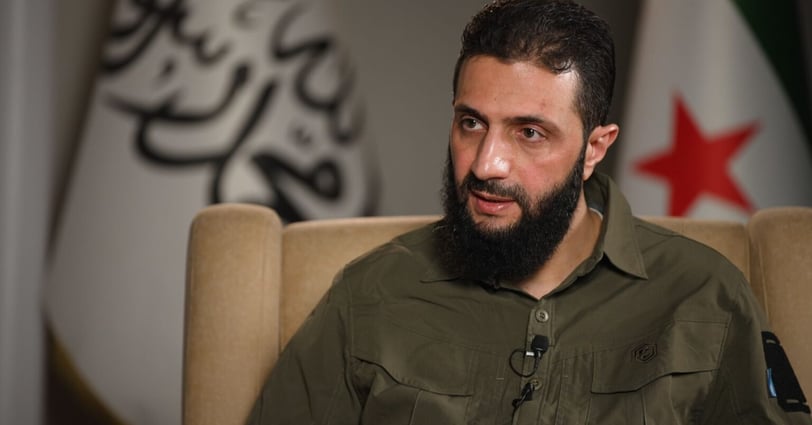U.S. Ends Bounty on Syria’s New Leader Following Key Damascus Meeting
NEWS


WASHINGTON (MilkyStory): The United States has officially withdrawn its reward for the capture of Syria’s new leader, Ahmed al-Sharaa, following what a senior U.S. diplomat described as “constructive discussions” during a groundbreaking meeting in Damascus.
Barbara Leaf, the U.S. assistant secretary for Near Eastern affairs, confirmed the decision on Friday after meeting with Sharaa, marking the first formal visit by U.S. diplomats to Syria since the early stages of the civil war.
The meeting comes in the wake of a rapid offensive by Hayat Tahrir al-Sham (HTS), an Islamist group formerly affiliated with Al-Qaeda, which ousted President Bashar al-Assad on December 8. Despite the U.S. designation of HTS as a terrorist organization, Leaf indicated that Sharaa’s commitments during the talks were promising enough to reconsider longstanding U.S. policies.
“After our discussions, it felt inconsistent to maintain the bounty on his head,” Leaf said, referring to the previous Rewards for Justice program targeting Sharaa. “We are hopeful but cautious, looking for tangible actions alongside these encouraging words.”
Sharaa reportedly pledged to prioritize regional stability and counterterrorism efforts. “Syria stands neutral and seeks to rebuild partnerships in the region,” read a statement from Syria’s new transitional leadership.
The U.S. delegation also included Roger Carstens, the presidential envoy for hostage affairs. Carstens said they collaborated with Syrian authorities to investigate potential locations tied to missing American journalist Austin Tice, who was kidnapped in 2012.
Escalated Military Efforts
In parallel with the diplomatic developments, the U.S. military confirmed the elimination of key Islamic State (IS) operatives in Syria’s Deir Ezzor province. The operation reflects intensified U.S. efforts to curb any resurgence of IS following Assad’s ousting.
The U.S. remains focused on ensuring regional security, including addressing tensions involving Kurdish forces and Turkish-backed factions. Leaf emphasized Washington’s commitment to mediating a ceasefire in flashpoint areas such as Kobane, while Germany cautioned against escalating violence in the region.
A Changing Regional Landscape
The power shift in Syria has drawn diverse international responses. While Kurdish groups welcomed Assad’s departure, concerns persist over potential Turkish aggression against Syrian Democratic Forces (SDF) units, which Ankara associates with the Kurdistan Workers’ Party (PKK).
Meanwhile, Iran and Russia, long seen as Assad’s primary allies, are anticipated to see their influence in Syria diminish under the new leadership.
As Syria begins its transition, U.S. and international calls for reassessing sanctions and empowering women to take active roles in reconstruction efforts are gaining traction.
Amid these developments, celebrations in Damascus continued nearly two weeks after Assad’s fall. Fireworks lit up the sky as crowds gathered in Umayyad Square, waving flags and marking a new chapter in Syria’s history.
